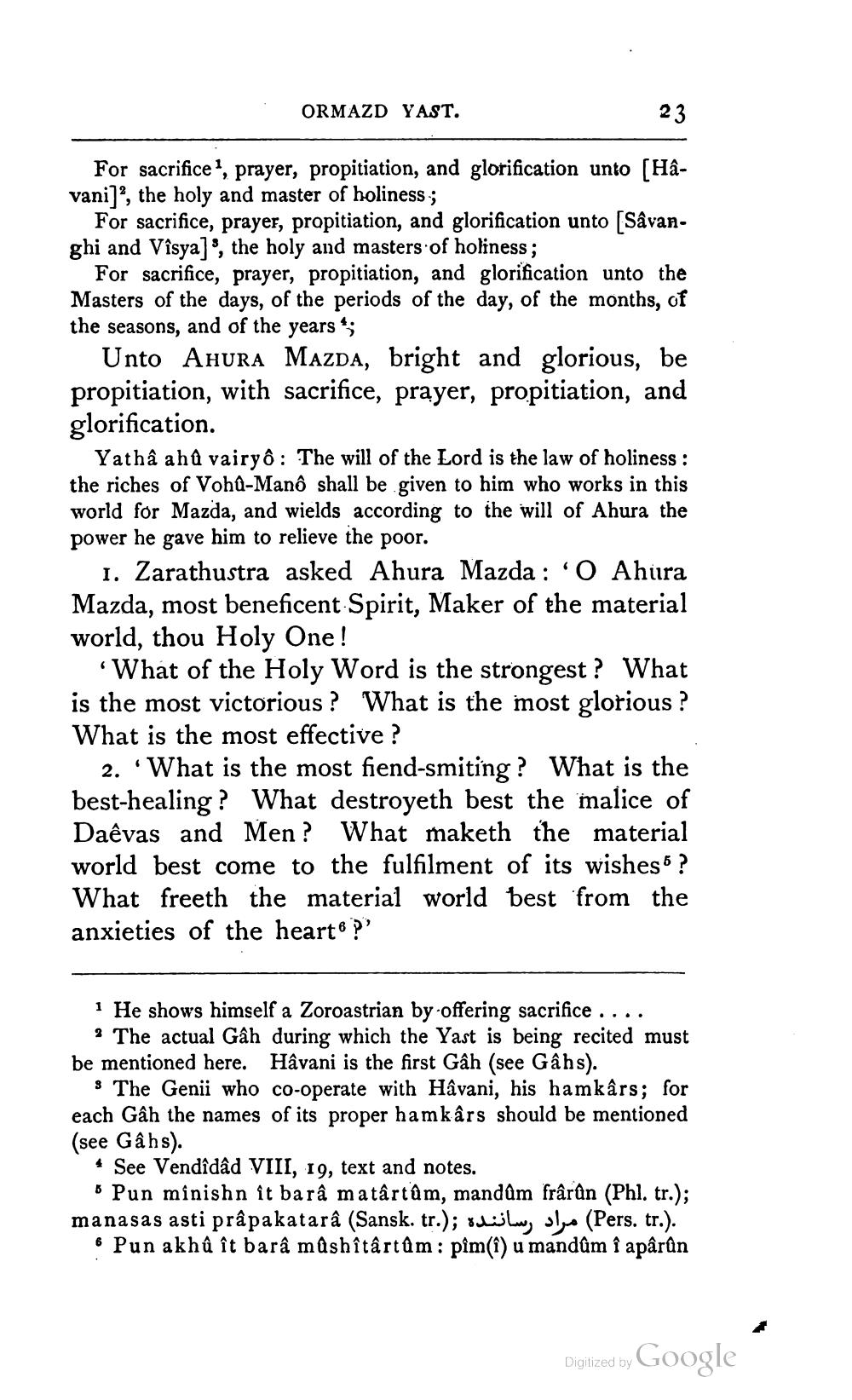________________
23
For sacrifice1, prayer, propitiation, and glorification unto [Hâvani], the holy and master of holiness;
ORMAZD YAST.
For sacrifice, prayer, propitiation, and glorification unto [Sâvanghi and Vîsya], the holy and masters of holiness;
For sacrifice, prayer, propitiation, and glorification unto the Masters of the days, of the periods of the day, of the months, of the seasons, and of the years *;
Unto AHURA MAZDA, bright and glorious, be propitiation, with sacrifice, prayer, propitiation, and glorification.
Yathâ ahu vairyô: The will of the Lord is the law of holiness: the riches of Vohû-Manô shall be given to him who works in this world for Mazda, and wields according to the will of Ahura the power he gave him to relieve the poor.
1. Zarathustra asked Ahura Mazda: 'O Ahura Mazda, most beneficent Spirit, Maker of the material world, thou Holy One!
'What of the Holy Word is the strongest? What is the most victorious? What is the most glorious? What is the most effective?
2. 'What is the most fiend-smiting? What is the best-healing? What destroyeth best the malice of Daêvas and Men? What maketh the material world best come to the fulfilment of its wishes"? What freeth the material world best from the anxieties of the heart?'
1 He shows himself a Zoroastrian by offering sacrifice....
2 The actual Gâh during which the Yast is being recited must be mentioned here. Hâvani is the first Gâh (see Gâhs).
s The Genii who co-operate with Hâvani, his hamkârs; for each Gâh the names of its proper hamkârs should be mentioned (see Gâhs).
See Vendîdâd VIII, 19, text and notes.
Pun minishn it barâ matârtâm, mandûm frârûn (Phl. tr.); manasas asti prâpakatarâ (Sansk. tr.); (Pers. tr.). Pun akhû ît barâ mûshîtârtâm: pîm(î) u mandûm î apârûn
Digitized by
Google




